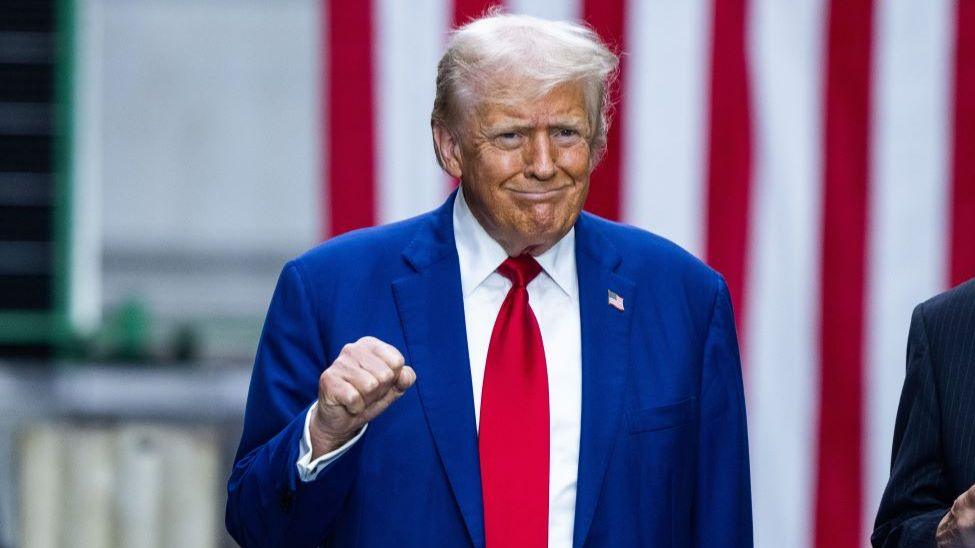Donald Trump’s former press secretary, Karoline Leavitt, has publicly described the BBC as “100% fake news” and a “propaganda machine,” following allegations of bias at the UK broadcaster. In a recent interview with the Telegraph, Leavitt criticized BBC coverage of Trump, saying watching their bulletins while in the UK “ruins” her day. She also claimed taxpayers were being “forced to foot the bill for a leftist propaganda machine.”
Leavitt’s comments follow scrutiny over a BBC Panorama documentary that allegedly misrepresented a speech by Trump ahead of the January 6, 2021 Capitol riots. A leaked memo suggested the program spliced parts of Trump’s speech, presenting him urging supporters to “fight like hell” while omitting a section where he encouraged the crowd “to peacefully and patriotically make your voices heard.”
Leavitt described the edited clip as “purposefully dishonest” and “further evidence that they are total, 100% fake news,” adding that it should not be “worth the time on the television screens of the great people of the United Kingdom.”
The reporting is based on a memo by Michael Prescott, a former adviser to the BBC’s editorial guidelines and standards committee. The 19-page document reportedly raised concerns over the broadcaster’s coverage of major issues, including its reporting on the Gaza conflict, alleging “systemic problems” and differences between BBC Arabic and the main BBC website. Prescott is said to have highlighted the use of commentators with antisemitic or pro-Hamas views.
The dossier also criticized the BBC’s handling of transgender issues, claiming stories raising complex questions were suppressed and the broadcaster promoted one-sided narratives through its LGBT desk.
The BBC responded by stating it does not comment on leaked documents but emphasized that feedback is taken seriously. They added that differing views and opinions are routinely discussed by advisory committees.
Leavitt’s remarks come amid growing debates over media impartiality and the role of public broadcasters in covering controversial political figures. The BBC, one of the world’s most prominent news organizations, continues to face scrutiny from critics who argue its coverage leans politically in certain areas.

